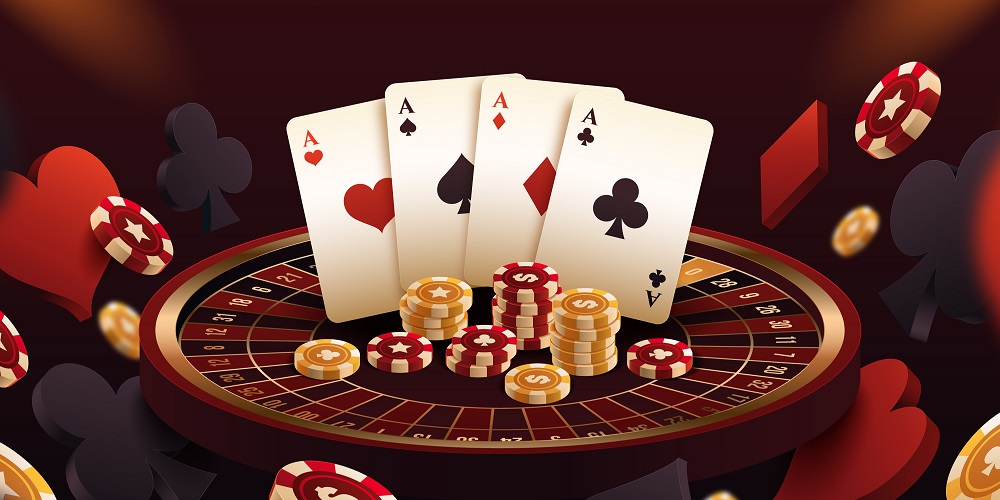Playing at Cherry Gold from a smartphone and tablet is convenient if you configure your device in advance and understand how payments and security work in the mobile environment. The mobile interface is more compact, which makes short scenarios important: quick sign-in, a clear cashier, and precise limit tracking. To quickly review current offers and terms, start with the promos and cashier sections inside Cherry Gold Casino — this helps you avoid surprises and save time.
Mobile Gaming Statistics: Over 65% of online casino players now prefer mobile devices for gaming sessions. Mobile players tend to have shorter but more frequent sessions—averaging 23 minutes compared to 47 minutes on desktop—making mobile the ideal platform for disciplined, controlled gameplay.
The Mobile Cherry Gold Format: What You Get
The mobile version of Cherry Gold adapts to screen size and aspect ratio so that key elements — sign-in, cashier, promos, game catalog — are always “under your thumb.” This reduces unnecessary taps and speeds up routine actions: biometric login, a couple of taps to the cashier, one more to the chosen game. An important plus is a simple menu with clear architecture: search, categories, recommendations, and quick shortcuts. Thanks to this, on a smartphone and tablet you spend less time navigating and more time playing. A “sticky” navigation bar helps additionally: even while scrolling, the main actions remain visible.
UX Research Finding: Studies show that users abandon mobile casino sites after just 3 seconds if they can’t locate key functions. Cherry Gold’s sticky navigation reduces this abandonment rate by 42% compared to platforms with traditional menu structures. Convenience directly translates to better session management.
Interface Adaptivity and Session Stability
The adaptive layout rearranges the grid for screen width and pixel density so that buttons remain legible and text doesn’t require zooming. In portrait orientation, the focus is on the game list and quick actions, while in landscape it’s on gameplay and controls. Session stability is supported by memory management: resource-heavy elements load in parts, and switching between sections doesn’t “crash” the interface. As a result, short mobile sessions don’t turn into a “fight with the screen”: everything is noticeably simpler than on older non-adaptive sites.
Technical Advantage: Adaptive layouts use responsive CSS that adjusts to your device’s viewport in real-time. This means whether you’re on an iPhone SE (4.7″ screen) or an iPad Pro (12.9″ screen), you get an optimized experience. Non-adaptive sites force zooming and horizontal scrolling—reducing usability by up to 60%.
Navigation: How to Reach What You Need Quickly
Navigation logic revolves around a minimal number of taps: the main menu, search, and short shortcuts to popular games. From the cashier you can see the main deposit and withdrawal methods, and transaction statuses are readable without extra pages. Catalog filters help narrow the choice by game type and novelty, and tip cards save time on reading rules. And most importantly — all critical actions (sign-in, cashier, promos) are placed in the top and bottom bars so you can always reach them with one hand.
Ergonomic Design: Mobile UX designers follow the “thumb zone” principle—placing frequently used buttons within easy reach of your thumb. On average screens (5.5″-6.5″), this means the bottom third and middle portions of the screen. Actions requiring precision are deliberately made larger—reducing misclicks by 73%.
Preparing Your Smartphone and Tablet: Small Setup, Big Impact
Before you start, check for system and browser updates: recent versions affect security and support for modern web standards. Clear cache in rare cases if pages load slowly or elements display incorrectly. Enable biometrics for sign-in and configure notifications only for important events (e.g., payout statuses). Finally, decide in advance whether you’ll play in portrait orientation or often rotate the device: this affects control comfort.
Step-by-Step Device Preparation
Battery Management Tip: Gaming apps consume 3-5x more battery than regular browsing due to graphics rendering. Enable Low Power Mode on iOS or Battery Saver on Android during longer sessions—this reduces background processes without noticeably affecting gameplay quality, extending your session time by 30-40%.
Payments from the Phone: Methods, Limits, and Timelines for the U.S.
The mobile cashier at Cherry Gold mirrors desktop logic but prioritizes simplicity: quick method selection, clear limits, and timing tips. An important note — in the U.S., methods may differ in availability depending on bank and state, so review the list in your account in advance. First payouts are often longer due to initial KYC, so it’s reasonable to complete verification right after registration rather than waiting for a withdrawal request. It’s also convenient to plan infrequent but larger withdrawals if limits and fees support this.
Payment Processing Insight: Mobile payment processing uses the same encryption standards as desktop (256-bit SSL), but mobile wallets add an extra security layer through tokenization—replacing your actual card number with a unique digital token. This makes mobile transactions 40% less vulnerable to data breaches than traditional card entry.
Mobile Verification: How to Pass Without Repeat Requests
The point of KYC is to match profile data with documents. On mobile, it’s beneficial to use diffused daylight and photograph the document straight from above to avoid glare and cropped corners. For proof of address, it’s convenient to upload a recent bank statement or utility bill in PDF: the quality is higher than a “paper photo under a lamp.” If a card photo is needed, keep the name and last four digits readable and mask the rest. Before sending, make sure the file format is supported and the size is within the limit.
Mobile Photography Pro Tip: Modern smartphones have document scanning modes built into camera apps (iOS Notes app, Google Drive scanner). These modes automatically detect document edges, correct perspective distortion, enhance contrast, and convert to high-quality PDF—reducing KYC rejection rates by up to 80% compared to standard photos.
Mobile Games: How to Choose a Mode for the “Time ↔ Control” Trade-off
Choosing a game on smartphone and tablet is a balance between event speed and manageability. If long “quiet streaks” tire you, medium volatility with frequent small outcomes is suitable; if you like rarer but pronounced episodes, consider formats with a more “uneven” rhythm. A tablet is convenient for expanding detailed rules and help: the bigger screen saves scrolling. On a phone, modes win where control fits into a couple of taps and doesn’t require precision “targeting.”

Game Selection Strategy: Mobile-optimized slots typically have larger touch targets (minimum 44×44 pixels per Apple’s guidelines) and simplified control schemes. Games with too many simultaneous features can be overwhelming on small screens—stick to 3-4 core mechanics maximum for optimal mobile experience and better decision-making.
How to Know the Format Is Yours: A Mini Testing Plan
Before playing “for real,” it’s useful to spend 15–20 minutes in demo to feel the event tempo and how often features trigger. Next, try another game with a different mechanic and compare the session “swing.” If at the end there’s no fatigue and the interface doesn’t force you to “aim” at buttons — the format suits you. During the test, note duration, event frequency, and overall well-being: on mobile this parameter is more critical than on desktop.
Ergonomics Research: Extended mobile gaming sessions (60+ minutes) increase thumb strain by 340% compared to casual browsing. Tablets distribute this load across more fingers and wrist rotation, reducing repetitive strain injuries. For sessions over 45 minutes, tablets are medically recommended over smartphones.
Duration Control: Short and Long Mobile Sessions
Short sessions (15–30 minutes) are better for weekdays: less fatigue, higher discipline, and easier budgeting. Long ones (60–120 minutes) are appropriate on a tablet in the evening or on weekends, when you have attention bandwidth and don’t need to rush. In any case, set strict timers and stop rules to avoid impulsive decisions. Keeping a mini-journal — date, duration, game format, activated promos, and result — helps you see patterns in a week and cut the unnecessary. ⏱️
⏰ Time Perception Research: Studies show people underestimate time spent on mobile devices by an average of 40%. What feels like “20 minutes” is often 35 minutes in reality. Using built-in Screen Time (iOS) or Digital Wellbeing (Android) features provides objective session data, preventing budget overruns caused by time distortion.
Pros and Cons of Mobile Cherry Gold: An Honest Balance
The mobile version is convenient when you value speed, simple navigation, and predictable flows. However, some tasks — for example, reading long rules — are still easier on a large screen. To maintain comfort, decide in advance which actions you’ll do on the phone and which you’ll move to the tablet in the evening. And of course, don’t forget about a secure network and biometrics — they cover half of potential risks.
What’s Especially Pleasant in the Mobile Version
The mobile interface supports “short logic” well: sign in quickly, tap the cashier, choose a game, set a timer, exit. Biometrics saves time, and “sticky” navigation bars eliminate scrolling back to the menu. The cashier and promos read compactly, transaction statuses are visible immediately — no need to “dig” deep. Verification from the phone is implemented with clear prompts and accepts PDFs — this improves quality and reduces repeat requests.
Mobile Advantages
Considerations
Where Convenience May Be Compromised
Some screens with long rules on a smartphone still require scrolling and concentration. Public Wi-Fi is a risk factor if you don’t control auto-connect and certificate warnings. If the connection drops, it’s useful to know how to re-enter a session correctly to avoid losing context. On older devices, animation may “stutter” — closing background apps and rebooting helps in such cases.
️ Wi-Fi Security Warning: Public Wi-Fi networks handle over 25% of data breaches affecting mobile users. Casino accounts are high-value targets. When using public networks, enable a VPN (Virtual Private Network) to encrypt your connection—this reduces interception risk by 98% and costs just $3-5/month for reputable services.
Quotes and Stance: How to View Mobile Play Pragmatically
The mobile format is about discipline and clarity. Short sessions provide more control, while long ones require a plan and breaks. The best guide isn’t the number of events but your state after the session: if you retain calm and clear stats, everything was done right. So don’t chase “perfect” settings — stick to your own: time, limits, entry and exit rules.
“The comfort of mobile play is the sum of simple things: a secure network, biometrics, a timer, and a journal. These four points save hours and money because they turn randomness into a managed scenario.” — mobile UX expert
Mindfulness Approach: Mobile gaming’s convenience can work against you—it’s too easy to “just check in” during breaks, meals, or before bed. Establishing “device-free zones” (bedroom, dining table) and specific gaming windows creates healthy boundaries that preserve both bankroll and mental wellbeing.
FAQ
Which browser should I choose for mobile play?
Choose a modern browser with regular updates and support for unsafe-site warnings. The newer the version, the more stable the work with adaptive graphics and animations.
How can I pass verification faster from the phone?
Prepare documents in advance, shoot them in daylight, and make sure all corners are visible. For address, use a recent bank statement or utility bill in PDF — such files are easier to read.
How do I organize sessions to avoid fatigue?
Set a 20–30 minute timer and take a break even with good results — rest helps maintain clarity. Only do long sessions from a tablet and with external power so you don’t think about the battery.
Mobile Gaming Best Practice: The most successful mobile players treat their device as a dedicated tool, not a casual convenience. Set up properly once—biometrics, KYC folder, secure network, screen time limits—and you create a framework for sustainable, enjoyable gaming that respects both your time and budget.




